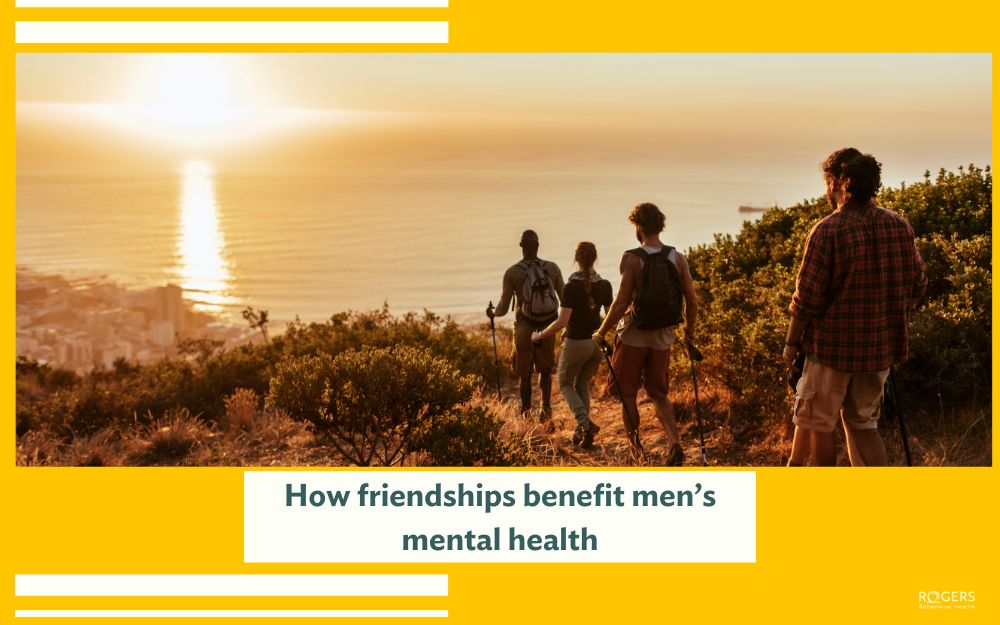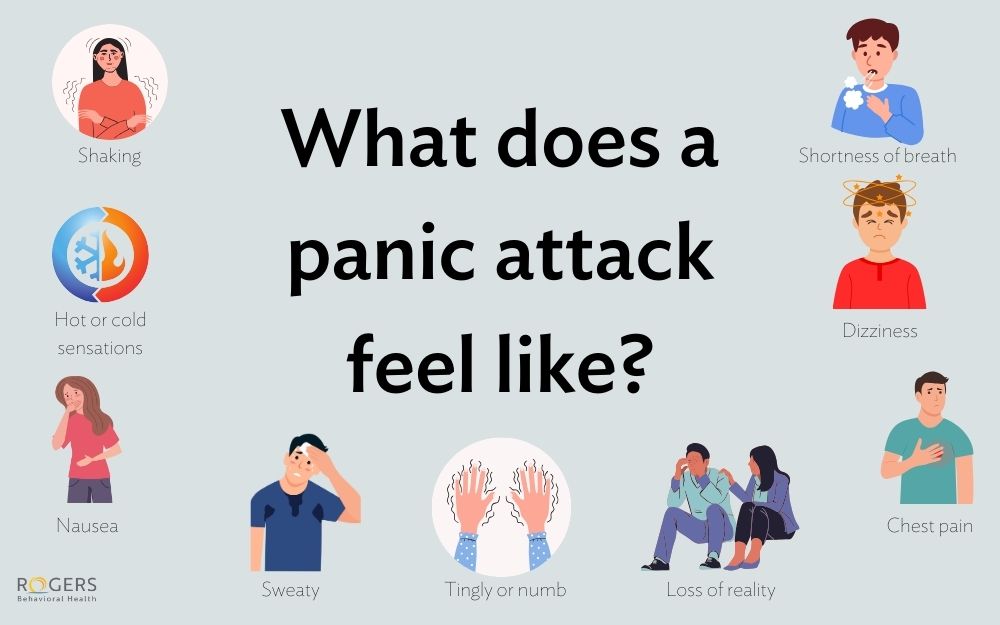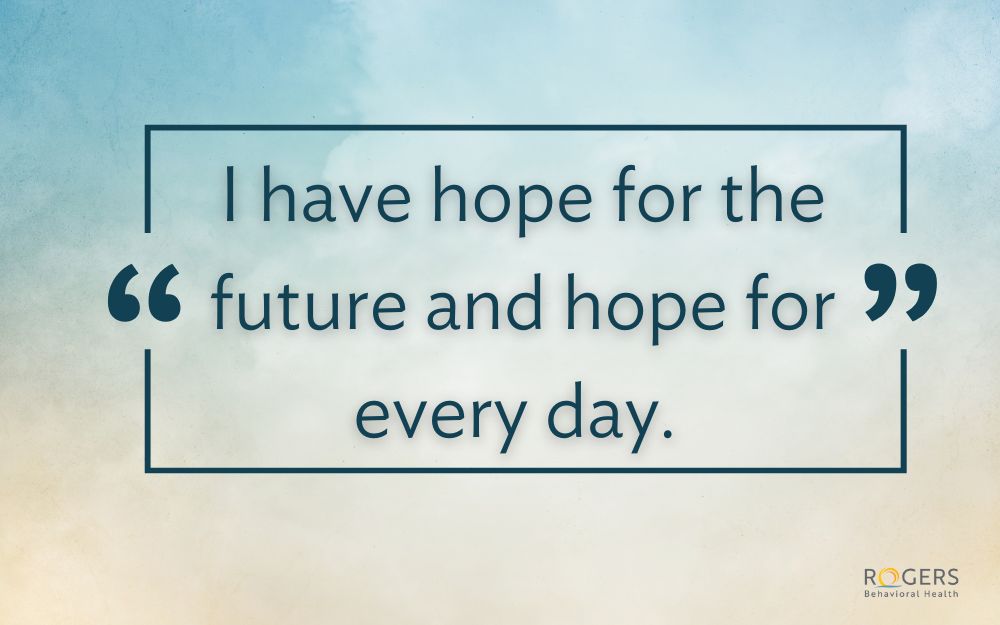Men’s mental health and the connection to physical health and friendship
Posted on 06/11/24 11:41:am
Share this article:
When it comes to health, it’s important to take a holistic view: taking into account both your body and mind -- and considerations beyond that, too.
June is Men’s Health Month, highlighting the unique health issues men may face. Timothy Ellingstad, PhD, psychologist and clinical director at Rogers in Kenosha, gives us a deeper look at how different factors play into wellbeing, including the impact of bonds with others.
The importance of human connection for men's health
While friendships may not be top of mind when thinking about what makes up a healthy lifestyle, studies show people who have close friends and confidants may:
- Be more satisfied with their lives
- Be less likely to suffer from depression
- Be less likely to die from all causes, including heart problems and other chronic diseases
- Carry mental health benefits of having friends from adolescence into adulthood
- Have higher late-life satisfaction
“Friendship is something that on some level is a universal need,” says Dr. Ellingstad. “The actual need is on a spectrum. Some people who are introverted may need less social contact, while others who are extroverted may need more. But you’re probably never going to be at zero.”
Obstacles to friendship for men
A 2021 survey by the Survey Center on American Life finds that in general, over the past three decades, the number of close friends Americans have has “plummeted.”
That’s especially true for men. The percentage of men with at least six close friends has decreased from 55% to 27% since 1990. The surveyors also note that men report being less emotionally connected to the friends they do have.
Broadly, a number of factors may play into the differences and obstacles men may face when forming close friendships compared to women:
- As the 2018 American Psychological Association guidelines note, men are often expected to be stoic, competitive, aggressive, and dominant, which can pose challenges to sharing emotions and forming close friendships.
- Those traits, traditionally thought of as masculine, are exaggerated in movies and on TV, and within some families.
- Boys and girls may be taught how to express themselves differently growing up, which can have an impact into adulthood.
- Women, on average, tend to have more relationships where it’s considered safe to talk about emotions and feelings. Women’s socialization tends to revolve around communication, while men’s socialization tends to revolve around a shared activity.
Men's mental health matters
Dr. Ellingstad says it’s important to remember not all generalizations will apply to everyone.
“There’s also some truth to how genders are socialized to communicate and attend to their own emotional needs,” he says. “In general, men have been slower to recognize their own mental health needs, which may stem from factors such as socialization or specific upbringing. Men have been less likely than women to seek mental health assistance when it’s needed. And there’s such a clear connection in both directions between mental health and other aspects of health.”
Men's mental health and physical health
As an example, Dr. Ellingstad explains outcomes for cancer or stroke patients are better when their mental health is good. And diabetes increases one’s risk for depression, while depression also increases the odds of developing diabetes.
“The influence goes both ways,” he says.
Whether you give it the label “physical” or “mental,” it’s all part of your overall health, and Dr. Ellingstad says it can be beneficial to not label all challenges as a medical problem.
“A focus on general health is needed: focusing less on the diagnostic label of a condition and what’s just normal, healthy behavior.”
4 tips for making connections
A solution to a lack of connection for men can mean finding friends or deepening existing relationships. Dr. Ellingstad has four suggestions:
- Get out of your comfort zone. Try taking the plunge and having new types of conversations.
- Small steps. It’s okay to simply write out your emotions in a note or email.
- Find friends through shared activities. Joining a bowling club or attending trivia nights can get you side by side with others who have similar interests.
- Recognize not all relationships need to fit an idealized image. Connections don’t have to revolve around emotional discussions to be beneficial.
“A sense of connection can happen by being on the same softball team year after year. It’s still very valuable,” he explains. “It’s okay to have a friendship that appears more superficial. Appearing superficial doesn’t necessarily mean superficial. There are still going to be benefits from that connection, even if we’re having a hard time saying we care about the person we’re spending time with. Many times the connections are enough.”
Stigma and men' s mental health
With the traditional “tough guy” persona associated with sports, Dr. Ellingstad points to prominent football figures such as Dak Prescott and Brandon Marshall being increasingly open about mental health issues as moving the needle in the right direction.
“I think that is a good sign. There was a time when the pushback and criticism would have been so overwhelming you wouldn’t have verbalized it,” he says. “I think it does set a positive example that others can talk about mental health, that it’s okay even in the face of criticism. Sometimes it might even be helpful to face the criticism and do it anyway and demonstrate that it doesn’t really matter if someone else is critical.”
Even with the gradual movement toward men talking openly about their mental health, he says there’s a long way to go in addressing stigma, which can be damaging to anyone’s health, man or woman.
“Stigma can bring the fears of being labeled, getting negative feedback, or that you’re seen as damaged or weak. That’s the kind of baggage that can come with seeking help. That gets in the way for so many people who actually need help,” he says. “The bottom line is, the more we talk about mental health concerns and seeking help and normalize it, the better.”
Mental health and addiction treatment at Rogers
Rogers offers multiple levels of care in Wisconsin, and PHP and IOP treatment across the country. Call 800-767-411 for a free, confidential screening.



